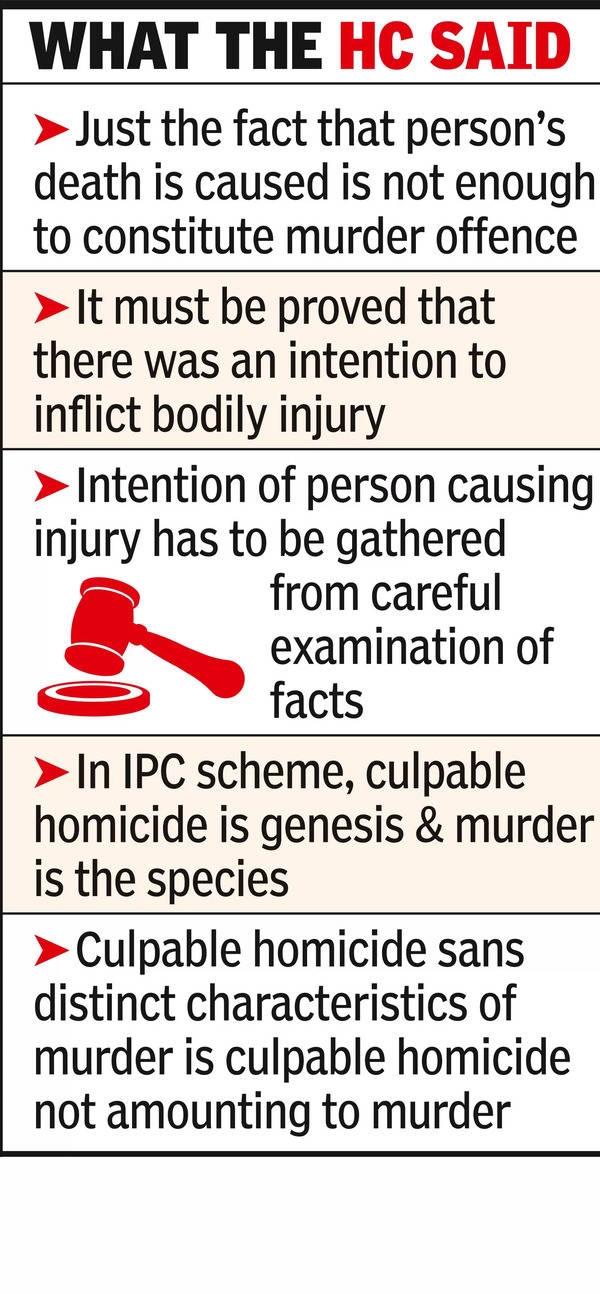Merely causing death of a human being is insufficient to constitute an offence of murder unless it is proved that there was a clear intention to cause death as mentioned under IPC section 300.“The intention of the person causing the injury has to be gathered by carefully examining facts and circumstances of each case,” a bench comprising justices Vinay Joshi and Vrushali Joshi said.

Clarifying that the intention to cause injury is a subjective inquiry, the bench said there would be further probe into whether the injury was sufficient to cause death is of objective nature. “It is now well understood that under the IPC, ‘culpable homicide’ is the genesis and ‘murder’ is the species. Generally speaking, culpable homicide sans distinctive characteristics of murder is culpable homicide not amounting to murder,” the court said.
Partly allowing an appeal filed by petitioner Ramesh Gawande from Hinganghat for killing his brother Gajanan in the spur of the moment with an axe on June 9, 2013, the judges commuted his life term awarded under Section 302 to seven years rigorous imprisonment under Section 304 Part-II. The HC set free his mother Sugandhabai who was sentenced one-year jail by the trial court for her role in the killing.
The court said that IPC recognizes three degrees of culpable homicide. “The first degree of culpable homicide is ‘murder’ which is defined by Section 300 and made punishable under Section 302. The second degree is culpable homicide as defined under Section 299 and made punishable under Section 304 Part-I. The third degree of culpable homicide is made punishable under Section 304 Part-II.”
The judges said whenever the accused causes the death of a person and had no intention to kill, then the offence would be murder only if, (1) the accused knew that the intended injury would likely cause death, or (2) that it would be sufficient in the ordinary course of nature to cause death or, (3) that the accused knew that the act must in surely cause death.